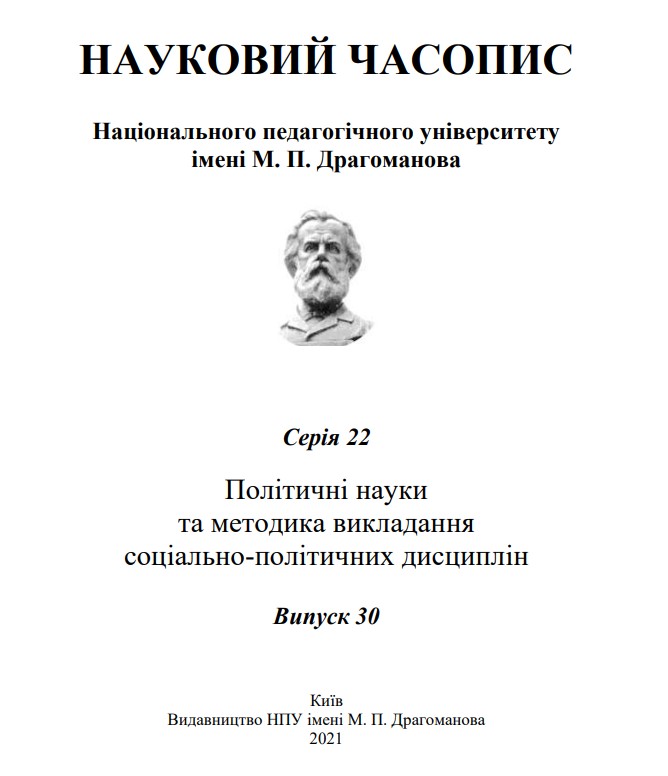TRANSITOLOGY: WAYS TO OVERCOME THE CRISIS AND VECTORS OF DEVELOPMENT
DOI:
https://doi.org/10.31392/pnspd.v22i30.1134Keywords:
transitology, crisis, actor-oriented approach, authoritarian modernization, clan-oligarchic political system, post-Soviet authoritarianismAbstract
The causes and features of the crisis of political transitology are considered, attention is focused on rethinking its classical provisions and possible ways of overcoming are identified. It is proved that the trend of democratization as a component of transit includes a number of problems: the emergence of a new corporatism, its emphasis on the union of society and business. As a result, there is a decrease in statist claims to total dominance. It has been established that a number of contradictions arise: between the proto-reforms of the global bureaucracy, neoliberal «digitalization» and a nonlinear, mobile, synergistic society. It is revealed that at the present stage of development of transitology there is an awareness that the features of changes in transit can be distinguished in the transformation of society and political institutions, glocalization of the metropolis landscape, the formation of deetatized and partially virtual universe. All this takes place against the background of the destruction of former hierarchies, variability and transformation of ways of influencing. The question of the content of transit in the conditions of uncertainty and a possibility of a probable choice in the conditions of hybrid modes is more and more often put on the agenda. It is pointed out that these facts contribute to a rethinking of the concept of «end» or «crisis of transitology». Therefore, the study of political transit as a process of socio-economic, political and institutional transformations is an important area of research in modern political science. It is emphasized that studies of political transformations, especially in the post-Soviet space, seem to confirm the exceptional importance of strategic decisions of actors and actors of democratization, emphasizing that favorable structural circumstances are important at the stage of democratic consolidation. It is noted that the classical «agent» (actor-oriented) approachto democracy and democratization did not exclude structural factors as conditions for successful democratic consolidation, and in the interpretations of post-Soviet authoritarianism there is an expanded interpretation of structural factors. Also some areas of democracy and democratization are analyzed. It is proved that in the conditions of clan-oligarchic model the possibilities of authoritarian modernization are limited, because while maintaining the socio-political status quo in the economic and managerial spheres, society remains out of politics.

